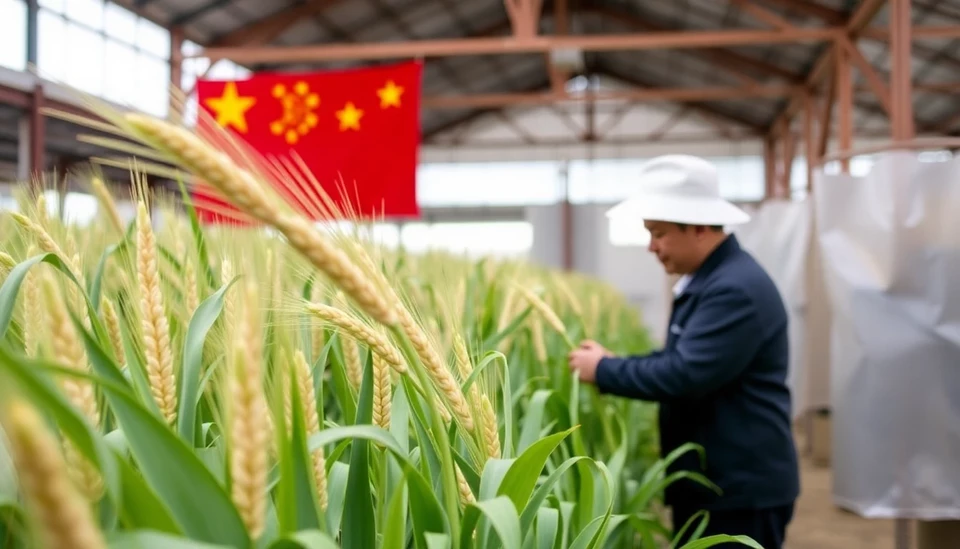
In a strategic move to bolster its agricultural production, China has officially raised its grain output target for the coming year, coinciding with mounting trade tensions on the global stage. The decision underscores China's commitment to achieving greater self-sufficiency in food production as it navigates through a complex array of economic pressures both domestic and international.
The Chinese government announced that it aimed for a grain production increase of 1% this year, setting a targeted output of approximately 670 million tons. This ambitious target reflects the nation’s effort to maintain food security, especially in light of international uncertainties and potential supply chain disruptions caused by escalating trade disputes with major partners.
During a briefing, agricultural officials emphasized that enhancing domestic grain production is crucial not only for meeting the needs of the Chinese populace but also for strengthening the agricultural sector amidst fluctuating global markets. They highlighted that advancements in farming technology, improved seed varieties, and expanded irrigation efforts will play a significant role in meeting these new production goals.
Trade tensions, particularly with the United States and other countries, have prompted China to rethink its strategy concerning agricultural imports. As tariffs and trade barriers have affected the availability and cost of imported grains, the Chinese leadership has recognized the importance of reducing reliance on foreign grain sources. This new target aligns with broader geopolitical goals aimed at increasing national resilience.
Experts predict that barring unforeseen weather conditions or other disruptive events, China is likely to meet its grain output goals. Analysts note that achieving this target will also require careful management of resources and a continued focus on sustainable farming practices.
In addition to bolstering grain production, China is also investing in enhancing its agricultural infrastructure. The government has allocated significant financial resources towards improving rural development, which includes building new storage facilities and upgrading transportation networks to facilitate an efficient distribution of crops once harvested.
This policy shift is also expected to have implications for global agricultural markets. A self-sufficient China could alter the dynamics of grain trade, potentially affecting prices and availability across the globe. As China seeks to enhance its agricultural output, other countries may need to adapt to the changing landscape of grain supply and demand.
In conclusion, as China sets its sights on achieving higher grain production amidst rising global trade tensions, it is important to monitor the developments in its agricultural policies closely. These changes not only impact domestic stability but also resonate across international agricultural markets, influencing trade relationships and economic strategies worldwide.
#China #GrainProduction #TradeTensions #Agriculture #FoodSecurity #Economy #GlobalMarket #Sustainability #FoodSupply
Author: Victoria Adams




